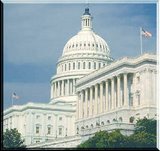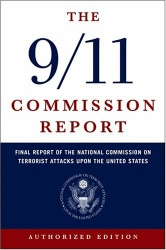Most of us can deduce the acronyms if we take the time. But instant simultaneous translation in the short time the newscaster delivers it--and moves on to the next topic--can result in mental confusion. By the time most people have translated the acronyms they have forgotten the point of the story.
Undoubtedly you have heard FISA over and over in the news lately. You know you have heard of it, and vaguely remember it is some kind of law. Here, in less than three minutes (that’s how long it took me to read it out loud) is all you need to know about FISA to understand the news.
What does FISA stand for?
F oreign I ntelligence S urveillance A ct
Why did Congress create this law?
President Nixon was convinced that the anti-war groups were controlled by communist organizations. This justification was at the heart of his eavesdropping and spying on American citizens. Nixon expanded the program to include anyone that he disliked. This was part of the scandal that caused Nixon to resign to avoid impeachment.


When was it passed?
For six years the Congress, White House and a few constitutional scholars worked together to create FISA. President Carter signed it in 1978. It has been amended at least three times since then: 1994, 1998, and 2004.
Who chooses the judges?
They are appointed by the Chief Justice of the Supreme Court


What is/was its purpose?
It created a legal entity that allowed the Executive Branch and its Justice Department to spy above and beyond ordinary law enforcement procedures.
Why is it called a ‘secret’ court?
The files and records are sealed, and may not be revealed outside of the court.
Who argues the cases?
The proceedings are non-adversarial and presented by representatives of the Department of Justice.


Is it hard to win?
The FISA courts approves over 90% of applications submitted
What paperwork do they need to file an application for warrant?
o A statement of why they believe the target for surveillance is an agent of a foreign power.
o Specific information on how the surveillance will be implemented.
o List of previous applications involving the target.
o Description of the nature of the information sought and the type of communication or activities subject to surveillance.
o Length of time surveillance is required.
o Whether physical entry to premises is necessary.
o Their plan for retention of information concerning non-consenting U. S. persons.
o Certification from a high ranking executive branch official stating that they believe the information sought will apply to foreign intelligence, and they cannot reasonably obtain the information through normal investigative techniques.
What criteria is the judge looking for when granting or denying the application?
The court requires proof of ‘probable cause’ in order to approve an application for spying on U.S. persons. In general, one of the following conditions must be met. Target:
• knowingly engages in clandestine (or other) intelligence activities on behalf of a foreign power which may violate criminal law.
• knowingly engages in sabotage or international terrorism or is preparing for such activities.
• knowingly aids or abets another who is acting in one of the above ways.
What if it is an emergency, no time for paperwork?
If it involves a US person the Attorney General may authorize immediate surveillance and file for judicial review within 72 hours.
For a non-U. S. person has one year to collect information without a court order. IF the surveillance has been certified by the Attorney General and notice is sent to the House and Senate Intelligence Committees. A sealed copy must also be filed with the FISA court.
Can a ruling against the Department of Justice be appealed?
Yes, there is an appeal process with the Foreign Intelligence Surveillance Court of Review. The only time it has been utilized was in 2002.


Link to complete text of FISA
http://www.law.cornell.edu/uscode/html/uscode50/usc_sup_01_50_10_36.html
First sentence
Translation: ‘Attorney General told the National Security Agency that the Foreign Intelligence Surveillance Act wasn’t necessary. Not everyone in Department Of Justice agreed and the Congressional Research Council published a paper disagreeing. Meanwhile on Capitol Hill the Senate Judiciary Committee met to discuss the Department Of Defense budget plan.
.



No comments:
Post a Comment